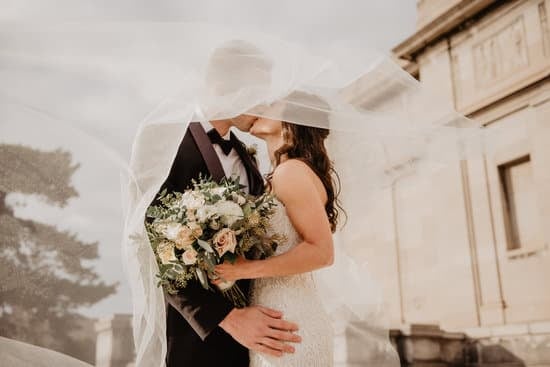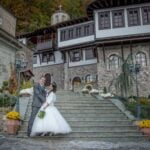Getting married in Massachusetts is an exciting endeavor, but one that requires careful consideration when it comes to choosing a wedding officiant. Whether religious or non-religious, the right officiant plays a crucial role in making the wedding ceremony memorable and meaningful.
In Massachusetts, it is essential to ensure that the chosen officiant is legally authorized to perform marriages. This article will provide valuable information on who can officiate a wedding in Massachusetts and the necessary legal requirements for each type of officiant.
When planning a wedding in Massachusetts, one of the first questions that may come to mind is: who can officiate a wedding in Massachusetts? The state has specific legal requirements and regulations regarding who can serve as an officiant, regardless of whether they are religious or non-religious. Understanding these requirements is vital for couples looking to tie the knot in the Bay State.
In addition to outlining the legal requirements for wedding officiants in Massachusetts, this article will also provide detailed information on religious officiants, non-religious officiants, Justices of the Peace, civil celebrants, and out-of-state officiants. By exploring each option, couples will be better equipped to make an informed decision when choosing the right officiant for their special day.
The Legal Requirements in Massachusetts
In Massachusetts, it is crucial to ensure that your wedding ceremony is officiated by someone who is legally authorized to do so. The legal requirements for officiants in Massachusetts are in place to uphold the validity of the marriage and protect the rights of the couple. To be recognized as a legal wedding officiant in Massachusetts, individuals must adhere to specific regulations and complete necessary paperwork.
One of the key legal requirements for officiants in Massachusetts is that they must be registered with the state. This registration process involves submitting an application and obtaining authorization from the Secretary of the Commonwealth’s office. Additionally, individuals who wish to officiate weddings in Massachusetts must familiarize themselves with the state’s marriage laws and ensure that they comply with all relevant regulations.
It is essential for couples to carefully consider their options when choosing an officiant for their wedding in Massachusetts. By selecting an individual who meets the legal requirements and has obtained proper authorization, couples can have peace of mind knowing that their marriage will be legally recognized. Understanding who can officiate a wedding in Massachusetts is crucial for couples as they navigate through this important aspect of their special day.
Religious Officiants
In Massachusetts, the laws regarding who can officiate a wedding are quite clear and they offer several options for religious officiants. The state recognizes the authority of ordained ministers, priests, rabbis, and other religious leaders to perform wedding ceremonies. However, there are certain requirements that must be met in order for these individuals to be legally eligible to officiate weddings in Massachusetts.
Eligibility Criteria for Religious Officiants
For religious leaders to be able to officiate weddings in Massachusetts, they must first be ordained or otherwise authorized by their religious organization. This means that individuals who have been recognized as leaders within their respective faith communities have the legal authority to solemnize marriages. It is important for couples to ensure that their chosen officiant is in good standing with their faith group and has the necessary credentials to perform weddings.
Legal Recognition of Religious Officiants
Once a religious leader meets the eligibility criteria and is authorized by their religious organization, they must also register with the Secretary of the Commonwealth in Massachusetts. This involves submitting the required paperwork and documentation, which may include proof of ordination or authorization as well as personal information about the officiant. Upon approval, the religious officiant will receive a certificate of authorization to solemnize marriages in the state.
Religious officiants play a significant role in ensuring that couples can celebrate their union according to their spiritual beliefs and traditions. Their ability to legally officiate weddings provides couples with an array of choices when it comes to selecting someone who can preside over their special day.
Whether it’s a priest from a local church, a rabbi from a synagogue, or another ordained minister from a different faith community, couples can find an officiant who resonates with their spiritual values and can help create a meaningful ceremony.
Non-Religious Officiants
In Massachusetts, couples have the option to choose a non-religious officiant to perform their wedding ceremony. These non-religious officiants provide an alternative for couples who do not wish to incorporate religious elements into their marriage ceremony. But who can officiate a wedding in Massachusetts as a non-religious officiant?
Non-religious individuals who wish to officiate weddings in Massachusetts must be legally recognized by the state. This typically involves registering as a “one-day solemnizer” with the Secretary of the Commonwealth’s office. As part of this process, the individual may need to provide certain documentation and pay a registration fee. It is important for those interested in becoming non-religious officiants to familiarize themselves with the specific requirements set forth by the state of Massachusetts.
Once they are legally authorized, non-religious officiants have the authority to perform marriage ceremonies within the state of Massachusetts. They have the flexibility to tailor each ceremony according to the preferences and beliefs of the couple getting married. This allows for more personalized and unique wedding experiences, as couples can work closely with their chosen non-religious officiant to create a ceremony that truly reflects their values and relationship.
Finding Your Non-Religious Officiant
Couples seeking a non-religious officiant for their Massachusetts wedding should take some time to research and interview potential candidates. It’s important to find someone who shares your vision for your wedding day and who is capable of delivering a meaningful and memorable ceremony. When selecting a non-religious officiant, consider factors such as personality, communication style, experience, and any special touches they may offer to make your ceremony one-of-a-kind.
By choosing a non-religious officiant in Massachusetts, couples can ensure that their wedding ceremony aligns with their beliefs and values while still being legally binding in accordance with state regulations.
Overall, selecting an officiant is an important decision that sets the tone for one of life’s most significant events – your marriage ceremony.
Justices of the Peace
In Massachusetts, Justices of the Peace hold the authority to officiate weddings. While they do not have any specific religious affiliations, they are legally empowered to perform marriage ceremonies. Justices of the Peace are appointed by the Governor and serve as representatives of the state in solemnizing marriages. They play a crucial role in ensuring that wedding ceremonies comply with legal requirements, thereby legitimizing the union of couples in Massachusetts.
To become a Justice of the Peace and obtain authorization to officiate weddings, individuals must go through an appointment process. This typically involves submitting an application to the Governor’s office and meeting certain eligibility criteria such as age, residency, and good standing within their community.
Once appointed, a Justice of the Peace is granted the legal authority to officiate weddings throughout Massachusetts. As part of their duties, they are responsible for guiding couples through the marriage license process, conducting the ceremony, and completing and filing all necessary paperwork with local authorities.
Couples seeking a non-religious or civil ceremony may find Justices of the Peace particularly suitable for their wedding officiant needs. With their official capacity recognized by the state, Justices of the Peace offer a secular option for couples who prefer a non-religious wedding ceremony. Their role in ensuring legal compliance and facilitating marriage formalities makes them valuable resources for couples regardless of their religious preferences.
| Massachusetts Justices of the Peace | Requirements |
|---|---|
| Appointment Process | Submission of application to Governor’s office |
| Qualifications | Age, residency, and good standing within community |
| Authority | Legal capacity to officiate weddings throughout Massachusetts |
Civil Celebrants
In Massachusetts, civil celebrants play a significant role in officiating weddings for couples who may not have a religious affiliation or prefer a non-traditional ceremony. Civil celebrants are individuals who have been certified to perform wedding ceremonies and are authorized by the state to legally marry couples. They offer an alternative option for those seeking a personalized and secular wedding experience.
To become certified as a civil celebrant in Massachusetts, individuals must undergo specific training and meet certain qualifications set forth by the state. This process ensures that civil celebrants are knowledgeable about the legal requirements and responsibilities of officiating weddings. Once certified, civil celebrants have the authority to solemnize marriages and sign marriage licenses, making the union legally binding.
Couples in Massachusetts have the freedom to choose a civil celebrant who resonates with their beliefs and values to conduct their wedding ceremony. Civil celebrants often work closely with couples to create customized ceremonies that reflect their unique love story and personal preferences. Their role goes beyond simply legalizing the marriage, as they strive to make each ceremony meaningful and memorable for the couple and their guests.
Out-of-State Officiants
For couples looking to have their wedding officiated in Massachusetts by someone from out of state, there are certain laws and regulations that need to be followed to ensure the legality of the marriage. Here is a brief overview of the process for out-of-state officiants to become legally authorized to officiate weddings in Massachusetts:
1. Obtain a One-Day Designation: Out-of-state officiants can apply for a one-day designation through the Massachusetts Governor’s office. This allows them to legally perform a specific wedding ceremony within the state. The application process typically requires details about the officiant, the couple getting married, and the date and location of the wedding.
2. Submit Required Documentation: Along with the application for a one-day designation, out-of-state officiants may need to submit certain documentation such as proof of ordination or licensure, letters of good standing from their religious organization (if applicable), and any other required paperwork as specified by the state of Massachusetts.
3. Receive Approval: Once all necessary documentation has been submitted and reviewed, the out-of-state officiant will receive approval from the Governor’s office to perform the wedding ceremony in Massachusetts. It is important for couples and their chosen officiant to complete this process well in advance of the wedding date to ensure everything is in order.
4. Additional Considerations: It’s also important for out-of-state officiants to familiarize themselves with any specific laws or regulations related to conducting marriage ceremonies in Massachusetts. This includes understanding what is required for submitting marriage licenses and ensuring that all legal aspects of the wedding are properly executed.
By following these steps, out-of-state officiants can successfully obtain legal authorization to perform wedding ceremonies in Massachusetts, allowing couples to have their preferred officiant oversee their special day regardless of where they are located.
Choosing the Right Officiant for Your Wedding
When it comes to choosing the right officiant for your wedding in Massachusetts, there are several options to consider. Whether you prefer a religious ceremony, a non-religious one, or are open to exploring other officiant options, it’s essential to select someone who aligns with your beliefs and values. Here are some key factors to consider when choosing the right officiant for your wedding:
- Religious Affiliation: If you and your partner have a specific religious affiliation and wish to incorporate traditional religious elements into your ceremony, you may want to consider having a religious officiant. Religious officiants, such as clergy members or ordained leaders within a religious organization, can perform weddings in accordance with their faith traditions.
- Personal Connection: It’s important to choose an officiant with whom you feel a personal connection. This individual will be guiding you through one of the most significant moments of your life, so having rapport and feeling comfortable with them is crucial.
- Ceremony Style: Consider the style and tone of the ceremony you envision for your wedding day. Different officiants may have varying approaches to conducting ceremonies, from more formal and traditional to modern and personalized. Choose an officiant whose style aligns with the type of ceremony you desire.
- Legal Authorization: Ensure that the officiant you choose is legally authorized to perform weddings in Massachusetts. This applies not only to religious officiants but also non-religious individuals, Justices of the Peace, civil celebrants, and out-of-state officiants who may have different legal requirements for authorization.
Ultimately, selecting the right wedding officiant is a personal decision that should reflect the preferences and values of both partners. Whether it’s a religious figure who shares your faith tradition, a secular celebrant who can customize a unique ceremony for you, or an out-of-state officiant who holds sentimental value, finding the perfect match will ensure that your wedding ceremony is meaningful and memorable.
Conclusion
In conclusion, getting married in Massachusetts offers couples a variety of options for who can officiate their wedding. Whether it be a religious or non-religious individual, Justice of the Peace, civil celebrant, or an out-of-state officiant, the state has clear legal requirements and regulations in place to ensure that the marriage ceremony is conducted by a properly authorized individual.
The process may vary depending on the type of officiant chosen and their qualifications, but each option offers couples the opportunity to have their wedding ceremony officiated in accordance with their beliefs and preferences.
When selecting the right officiant for their wedding, couples should consider factors such as their personal connection with the officiant, the style and tone they want for their ceremony, as well as any specific religious or cultural requirements.
Whether they choose someone from within their religious community, a friend or family member who is qualified to conduct weddings under Massachusetts law, or opt for a professional civil celebrant or Justice of the Peace – the couple’s choice of officiant should reflect their values and vision for their special day.
Ultimately, choosing the right wedding officiant is an essential part of planning a memorable and meaningful ceremony. By understanding the legal requirements and exploring all available options for who can officiate a wedding in Massachusetts, couples can make an informed decision that best represents their love and commitment to each other.
Frequently Asked Questions
Can My Friend Officiate My Wedding in Massachusetts?
In Massachusetts, a friend can officiate a wedding if they become ordained as a minister or justice of the peace. This can typically be done online through various organizations and is relatively simple and low-cost.
How Do I Get Certified to Marry Someone in Massachusetts?
To become certified to marry someone in Massachusetts, individuals need to apply for a one-day marriage designation from the Governor’s office or become an ordained minister or justice of the peace through an online organization. Once certified, they will be able to legally perform wedding ceremonies in the state.
Can a Non US Citizen Officiate a Wedding?
In many states, including Massachusetts, non-US citizens can officiate weddings as long as they have been ordained by a recognized religious organization or obtained permission to perform marriages from the Secretary of the Commonwealth. Non-US citizens should research and ensure they meet any specific requirements set forth by the state before officiating a wedding ceremony.

I have been involved in marriages for over 20 years helping couples and singles understand more about them.





